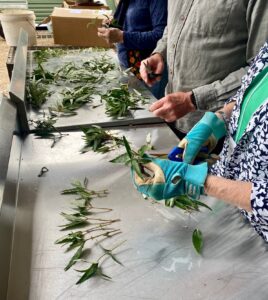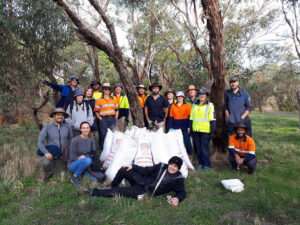Upskilling in horticulture made easy: From free training to paid professional development
By Dan Austin
While the last few years have challenged many of us beyond anything we might have thought possible in the years prior, there is now light at the end of the tunnel and for us in horticulture, a lot more than just a silver lining coming from the COVID-19 cloud.
The pandemic, and the uncertainty it brought with it, saw people revaluating the important things in life, and frequent lockdowns led to more time at home with a chance to reconnect with gardens. As a result, demand often outweighed supply in the nursery industry over the last twenty-four months and the horticultural business has been booming.
Beyond industry growth, the challenges in recent times have also seen education in the sector being re-evaluated, leading to some fantastic opportunities to upskill and broaden your horticultural horizons cheaply, or, in a move rarely seen since the 1970s, even for free.

The University of Tasmania offers several courses online that can be studied from anywhere in Australia and in 2022 has several undergraduate certificates on offer with fees waived entirely, including certificates in Sustainable Living, Agribusiness and Environmental Management. There are also numerous industry scholarships offered annually to study a Masterclass in Horticultural Business which is delivered by this innovative university without fees. In the vocational education space, various state and federal subsidies are providing fee-free accredited training from Certificate II to Diploma in some cases, so it is well worth investigating what assistance might be available for tertiary studies in your state.
When it comes to upskilling with informal training, the opportunities in horticulture keep coming, particularly if you are under thirty-five, when there are numerous scholarships available to help you build a healthy career foundation. The International Plant Propagators Society offers the Six Pack program which provides flights, accommodation and entry for six young horticulturists to attend its annual conference in exchange for assistance at the event. IPPS has also historically offered an all-expenses paid exchange program to South Africa to study the nursery industry and while it has been on hold in recent years, as the world opens up again, it is time to keep your ear to the ground regarding international opportunities. If you are in the ‘youth’ category, the Australian Garden Council website should be bookmarked and on your favourites list as it provides links to various horticultural scholarships, awards and opportunities offered across Australia and internationally.
The Winston Churchill Trust and the Churchill Fellowships the body provides are a great illustration that international opportunities for paid professional development are again resuming, with the organisation recently concluding a round of applications for 2023 travel. These fellowships are uniquely valuable, in that they are available to adults young and old and from diverse backgrounds. You don’t need any specific level of education and you can apply to study any topic for which you have a passion. Horticultural fellows have studied topics from ‘investigating urban farm ventures that provide vocational pathways for aspiring food growers’ to ‘building on the knowledge, experience and technology used in the freezing of whole soft-berry fruits’. There really is no limit to the topic you want to study. Applicants are empowered to design their own projects to explore international best practice and innovation that can then be applied in Australia.

Other opportunities to consider offer a trade of professional development for volunteering your time. In South Australia, the annual Coastal Ambassador’s Program provides formal training and practical experience over several weeks. A diverse range of topics involving coastal ecosystems are covered (including the plants), while at the same time participants help with important data collection and ecosystem maintenance. In Canberra, the Australian National Herbarium follows suit, offering a Volunteer Botanical Training Program each year that provides participants with structured training sessions while they assist with manual work within the herbarium. The type of training these annual events offer, is of a quality that many people would happily pay for, so there is a competitive application process.
Volunteering in general is a great way to upskill and network while providing that extra feeling of satisfaction having contributed to the community or the environment, and in horticulture there is no shortage of organisations looking for help. Whether it is garden maintenance at an aged care facility or botanic garden, bush revegetation and weed control or propagation and raising plants, your skills can be put to good use and your resume strengthened at the same time.
You can train and upskill until your resume looks like a phone book, but a successful career requires more than knowledge and experience. Knowledge and experience are powerful tools for success and essential to be good at what you do, but equally as powerful is a healthy industry network. Surrounding yourself with people who can present you with otherwise overlooked opportunities, and for whom you can do the same, is the key to really developing professionally. The easiest way to get started in this regard is to join as many industry bodies and garden clubs as possible to see what is happening broadly in your industry and to be seen as a contributor.
Membership to industry bodies and garden clubs does generally come at a cost, so it is the first piece of advice in this article that will have you reaching for your wallet, but for what you can get in return, memberships are money well spent and will likely pay off in spades. With an industry as proactive and supportive as ours, upskilling in horticulture is easy and contrary to the old adage, you can teach an old dog new tricks. So, whether you are long-in-the-tooth, a spring chicken or somewhere in between, now is a good time to get started.
Main image: TAFESA students gain formal qualifications while undertaking real world practical activities, in this case, weed control for Trees for Life

